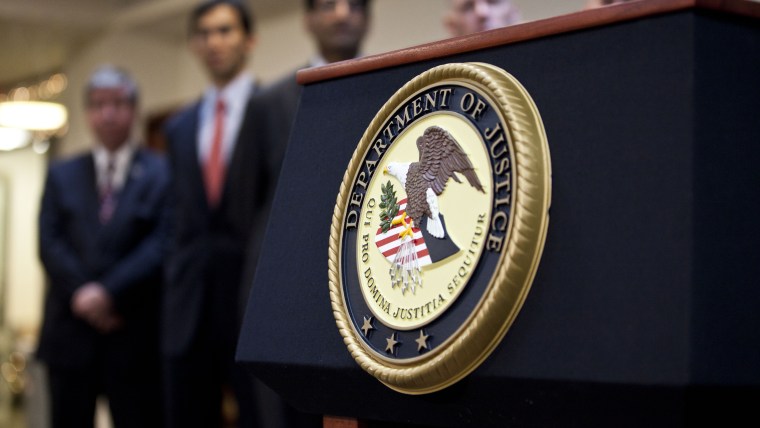The House Judiciary Committee held a hearing this morning on election security and, as the Associated Press reported, the witnesses were asked if they believe it's inappropriate for an American president to ask a foreign government to investigate a domestic rival. The answers were encouraging -- for the most part.
House Judiciary Committee Chairman Jerrold Nadler ... was referencing a July phone call in which President Donald Trump prodded his Ukrainian counterpart to investigate Democratic rival Joe Biden.Three officials answered that it was not appropriate to ask a foreign leader for a political investigation.A deputy assistant attorney general in the Justice Department's national security division, Adam Hickey, said he would not comment on the president's activities.
If the published witness list is correct, it means Department of Homeland Security Senior Cybersecurity Advisor Matthew Masterson, FBI Deputy Assistant Director for Counterterrorism Nikki Floris, and U.S. Election Assistance Commission Vice Chair Ben Hovland were all willing to say that an American president should not ask a foreign government to investigate a domestic rival.
But the Justice Department's Adam Hickey, the deputy assistant attorney general in the National Security Division, balked. He could've commented on the underlying principle, without commenting on Donald Trump's actions specifically, but the DOJ official chose not to.
What amazes me about incidents like these is how easy the question should be to answer. Heck, even Sen. Ted Cruz (R-Texas) knows how to answer it properly.
As regular readers know, CBS News' Margaret Brennan recently asked Cruz whether it's appropriate for Trump to urge foreign countries to go after one of his domestic rivals. "Look, of course not," the Texas Republican replied. "Elections in the U.S. should be decided by Americans and it's not the business of foreign countries, any foreign countries, to be interfering in our elections."
Cruz added, "Listen, foreign countries should stay out of American elections. That's true for Russia. That's true for Ukraine. That's true for China. That's true for all of them. It should be the American people deciding elections."
I'm not generally in the habit of singling out the junior senator from Texas as an example to follow, but there's no reason Republicans can't answer this simple, fundamental question the way Ted Cruz did. It should be especially easy for someone at the Justice Department to do so.
And yet, here we are.
Alas, a variety of GOP officials continue to struggle with this. Sen. Cory Gardner (R-Colo.) recently had an embarrassing exchange with reporters who asked, "Do you believe it's appropriate for the president of the United States to ask a foreign leader to investigate a political rival? Yes or no?" The Colorado Republican refused to give a straight answer.
A week later, after the senator and his aides had time to prepare a sensible response, another reporter asked Gardner to comment on the scandal, and the Republican lawmaker abruptly ended the interview.
There's no good reason for this to be so difficult.
